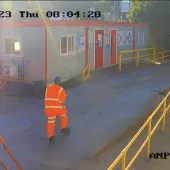Recycling firm sentenced over worker injury

Recresco Ltd fined £50,000 for safety failings after employee loses arm on a moving conveyor belt
RECRESCO have been fined £50,000 for safety failings, which resulted in an agency worker losing his arm. Philip Grace, 43, lost part of his right arm at the recycling operator’s Manisty Wharf site in Ellesmere Port, Cheshire, when it became trapped in a conveyor belt he was maintaining.
Liverpool Crown Court was told how, on 26 January 2014, Mr Grace’s safety glove got caught on a moving conveyor belt on a glass-sorting machine that he was carrying out maintenance. His arm was pulled into the machine and severed from above the wrist and attempts to reattach his hand were unsuccessful. The extensive surgery Mr Grace has undergone to repair his arm has left him with limited mobility and he now lives in constant pain.
An investigation by the Health and Safety Executive (HSE) found multiple failings by the company, which put its own and agency workers at risk. Recresco had failed to assess the risks associated with working on moving conveyor belts as well as ensuring the machinery across their site was properly guarded.
The company also did not have a safe system of work in place and there were insufficient information, instruction or training relating to the conveyors, which routinely exposed their workers to dangerous situations.
As well as the £50,000 fine, Recresco was also ordered to pay £21,625 in costs and a £120 victim surcharge after pleading guilty to breaching the Health and Safety at Work etc Act 1974.
Following the case, HSE Inspector Jane Carroll said: ‘Philip Grace’s life has been deeply affected by this entirely preventable incident. The need for safe systems of work, correct guarding, staff being trained and risk assessments being carried out are the basics of health and safety for a company like Recresco Ltd.
‘Companies must recognize the need for proper safe systems of work, guarding and training to protect workers who are operating or maintaining heavy machinery like the conveyor belts used in the recycling industry.’









